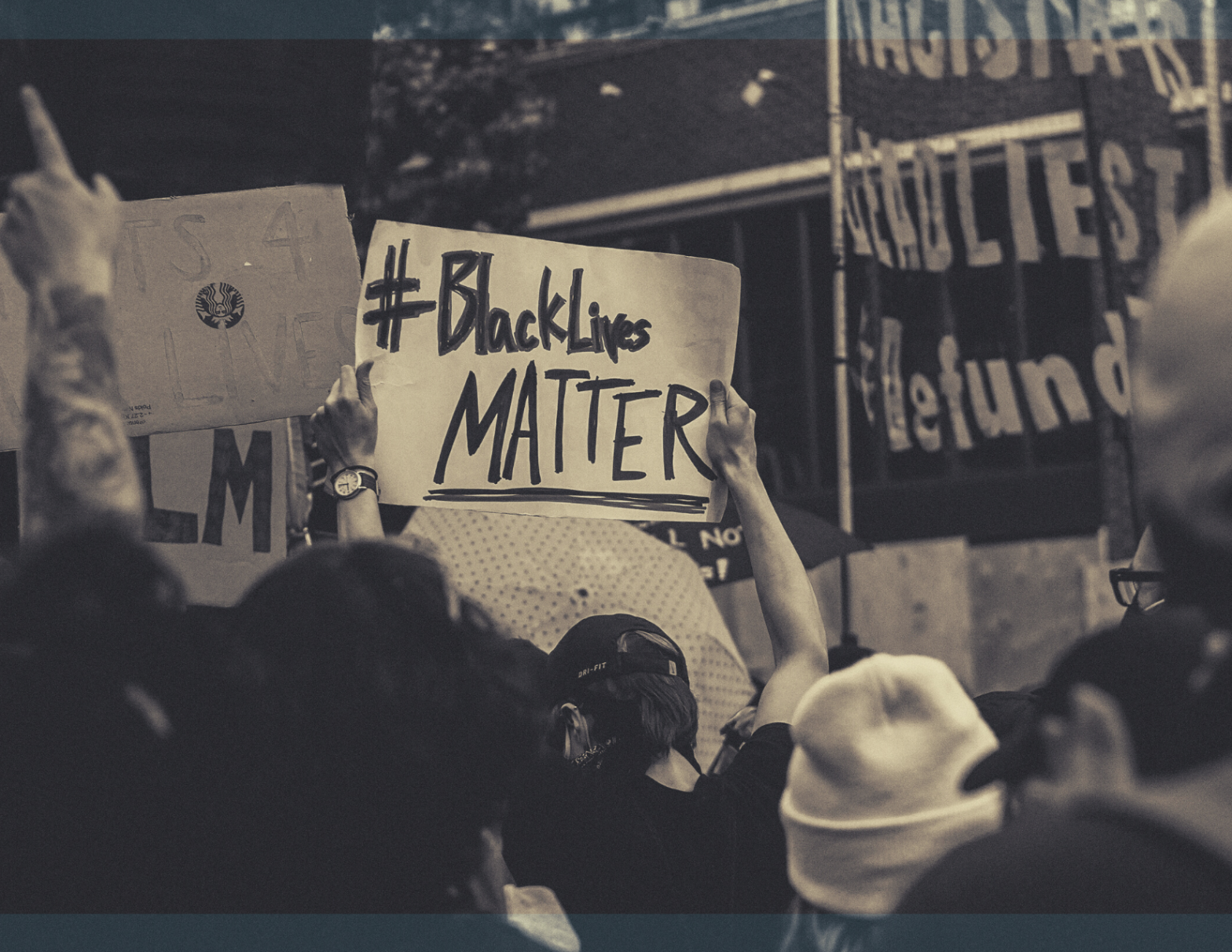I see you! I know that you and I and so many other people are working to create an anti-racist world – where we are all treated with dignity, respect, equity and equality.
But I see a problem. I know you’ve noticed it too.
Sometimes I see us working against each other instead of with each other.
It’s crazy because we, the BIPOC (Black, Indigenous, People of Colour) community and allies, are pretty much on the same page on the root causes of racism, why it exists and what we want instead.
However, we are less clear on how to achieve the vision of people treating each other equally, equitably, with dignity and respect.
I feel like a lot of us are in caught up in a cycle of Fear, Courage, Fed-Upness and Inspiration. The thing is, few of us know where we are in the cycle…or even that we’re in the cycle!
This lack of awareness is stalling our progress in anti-racism. It also makes us blind to the traps of the existing structure that allows racism to thrive.
Perfection is one of the biggest traps and stalls our progress in two ways:
- When the BIPOC community expect allies, especially white allies, to “get it right” – to listen, acknowledge, speak up for, defend and support BIPOC human rights – we use an effective weapon of the patriarchy and colonialism – perfection. Perfection keeps us occupied on heaping judgment and shame on others. We instill the same shame, judgment, fear and imposter syndrome we’ve had imposed on us by the systems of oppression onto others. This distracts us from dismantling racism and undermines our anti-racist agenda.
- Allies can get stuck in freeze-mode. They can become afraid of not “getting it right” because of the shame and blame they’ve seen others experience. They can also experience overwhelm and paralysis because they are unsure how to practice allyship. This results in any actions taken being small and safe. Unfortunately, these actions will not disrupt and dismantle a harmful and toxic system of oppression.
Perfection will stop us creating an anti-racist world.
So, what do we do? How can we work better together? Below I outline tips for BIPOC and allies. Check it out.
Tips for the BIPOC Community
1. Know Where You’re At.
Know where you are at in the cycle of Fear, Courage, Fed-Upness and Inspiration and act accordingly.
When in fear, take care of yourself first. Surround yourself with a good support system and be gentle with yourself. Name your boundaries when you need to. State your feelings (if you can), what is and is not ok, without adding judgement or shame – it will help the person hear you better.
When you feel courage lean into the work and nurture your resilience.
When you’re fed-up, pass the baton (see point below).
When you’re inspired pass it on to others and welcome more people to the cause and the community.
2. Model the How.
Model the behaviour you want from others.
If you want to be heard, model active listening. If you want to experience compassion, act with compassion. If you want boundaries respected, learn others’ boundaries and indicate to them that you acknowledge and respect them. If you want accountability and transparency, practice both.
3. Share don’t preach.
When you can, communicate your wants and needs. Avoid “shoulding.” You’ve been on the other end of “shoulding” so you know it doesn’t rally anyone to a cause.
Share the following instead:
- What does anti-racism means to you?
- What do you want to experience in an anti-racist world?
- What behaviours and actions do you want from allies and those who discriminate against you? and
- What does support look like and what is safe space according to you?
Breaking it down this way makes it easier for people to grasp what they don’t know they don’t know – and allows them together with you to make the vision of an anti-racist world a reality.
4. Take a time out.
When you have no more patience; when your boundaries have been tested or violated; when your emotions have been stretched; when your anger has reached its height, take a time-out. You are entitled to feel the way you feel. Doing this work is a burden, unfair and unjust. It’s also essential – so rest and recover so you don’t burn out!
5. Pass the baton.
Picture a relay race with 4 runners and a baton. Your team is prepared to take over where you leave off. You push yourself to the limit and then hand over the baton. You take the time to catch your breath. As the baton is passed to the next team mate, it eventually comes back to you and by this point, you’ve recovered, you’re ready.
Doing anti-racism work requires such a team and there are plenty of people who meet the requirements – those who share the vision of an anti-racist world, who love you, care for you, and hold you accountable to your values. They expect the same from you and know when to jump in to give you a helping hand.
When you are stretched to the limit, pass the baton. You’ve earned it. And you need to do this to do the important work.
Tips for Allies
To address racism:
- Actively Listen (see the link below for a detailed breakdown on how to do this as an ally)
- Acknowledge what is shared with you
- Speak Up for BIPOC
- Act in defence and support of BIPOC human rights
Here are some additional actions to take.
1.Get Curious.
Learn from the allies that came before you. What worked and what didn’t? How did white fragility and imposter syndrome get in the way and what did allies do to overcome these challenges? What does the BIPOC community want and how can you start to incorporate these behaviours and actions into your every-day?
2. Learn how.
Learn how to advocate for others. BIPOC people have had to learn this, now it’s your turn. It’s ok if you don’t know how to actively listen or speak up in support of BIPOC human rights. But don’t let it be an excuse. There is so much information out there on the specific ways to advocate for the BIPOC community at work and in life. Take baby steps. Don’t try to do everything at once. Remember, learning how to advocate means you need to try, do it imperfectly, learn from the experience and try again.
You will notice how difficult it is to stand up against people who oppress and want to keep their privilege. Shift from this feeling to empathy. This is what the BIPOC community have had to experience – learning how to advocate and be heard in the face of resistance. You’re also in the unique position to understand how the privileged feel – an attack to their identity and way of life. Being asked to create an equal world can feel like being asked to give-up one’s identity and way of life instead of thinking of it as an opportunity to create an existence all can enjoy and benefit from. There’s a chance for you to connect-the-dots on how anti-racism has benefits for everyone including those with existing privileges. Let this experience build connection and understanding as well as your anti-racism skillset.
3. Take a time out.
This is tough work. And if you’ve experienced privilege as a result of the system and are now an ally, you‘ll likely realize the negative impacts your privilege has had on others. You’re beginning to understand how dire it has made the situation for the BIPOC community. These realizations can bring on self-judgment, shame and grief. Take the time to process this and when you are ready, step back in to the work to create an anti-racist world.
4. Finally, know where you’re at.
You too are in a cycle of Fear, Courage, Fed-Upness and Inspiration. Act accordingly.
When in fear, take care of yourself first. Surround yourself with a good support system and be gentle with yourself.
Name your boundaries when you need to. State your feelings (if you can), what is and is not ok, without adding judgement or shame – it will help the person hear you better.
When you feel courage lean into the work and nurture your resilience.
When you’re fed-up, pass the baton (see point above).
When you’re inspired pass it on to others and welcome more people to the cause and the community.
You can do this. We all can. Be gentle with yourself AND keep trying!

N.B.1.
If you want some free help to build your ability to self-advocate and be resilient sign-up for my free guide on how to be Present, Clear & Resilient here. You’ll also get posts like this straight to your inbox as well as tips, tools and specials only shared if you’re on the e-mail list.
N.B.2.
If you want help learning how to effectively advocate for yourself at work or want help building clarity on next steps for your career and life, learn what I have to offer here and then book a free needs assessment or send an e-mail to jo@jorodrigues.net.
Resources:
How to Actively Listen – For Allies
1 Guaranteed Way to Make Equity, Inclusion & Diversity a Reality–

